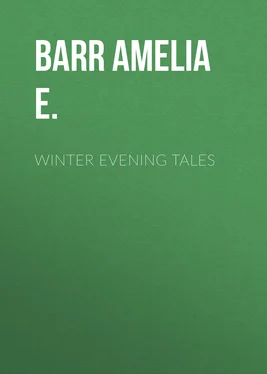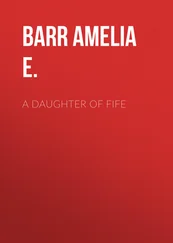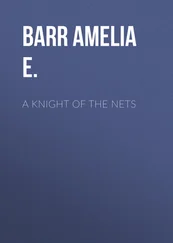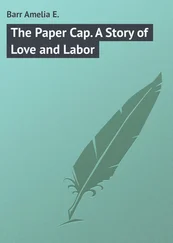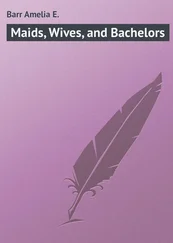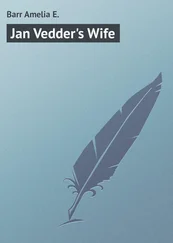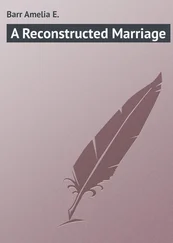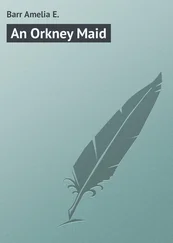Amelia Barr - Winter Evening Tales
Здесь есть возможность читать онлайн «Amelia Barr - Winter Evening Tales» — ознакомительный отрывок электронной книги совершенно бесплатно, а после прочтения отрывка купить полную версию. В некоторых случаях можно слушать аудио, скачать через торрент в формате fb2 и присутствует краткое содержание. Жанр: foreign_prose, foreign_antique, на английском языке. Описание произведения, (предисловие) а так же отзывы посетителей доступны на портале библиотеки ЛибКат.
- Название:Winter Evening Tales
- Автор:
- Жанр:
- Год:неизвестен
- ISBN:нет данных
- Рейтинг книги:5 / 5. Голосов: 1
-
Избранное:Добавить в избранное
- Отзывы:
-
Ваша оценка:
- 100
- 1
- 2
- 3
- 4
- 5
Winter Evening Tales: краткое содержание, описание и аннотация
Предлагаем к чтению аннотацию, описание, краткое содержание или предисловие (зависит от того, что написал сам автор книги «Winter Evening Tales»). Если вы не нашли необходимую информацию о книге — напишите в комментариях, мы постараемся отыскать её.
Winter Evening Tales — читать онлайн ознакомительный отрывок
Ниже представлен текст книги, разбитый по страницам. Система сохранения места последней прочитанной страницы, позволяет с удобством читать онлайн бесплатно книгу «Winter Evening Tales», без необходимости каждый раз заново искать на чём Вы остановились. Поставьте закладку, и сможете в любой момент перейти на страницу, на которой закончили чтение.
Интервал:
Закладка:
"Good morning, Davie. Your father is here."
Then Andrew Lockerby came forward, and his son met him with outstretched hands and paling cheeks. "What is it, father? Mother? Mary? Is she dead?"
"'Deed, no, my lad. There's naething wrang but will turn to right. Mary Moir was married three days syne, and I thocht you wad rather hear the news from are that loved you. That's a', Davie; and indeed it's a loss that's a great gain."
"Who did she marry?"
"Just a bit wizened body frae the East Indies, a'most as yellow as his gold, an' as auld as her father. But the Deacon is greatly set up wi' the match—or the settlements—and Mary comes o' a gripping kind. There's her brother Gavin, he'd sell the ears aff his head, an' they werena fastened on."
Then David went away with his father, and after half-an-hour's talk on the subject together it was never mentioned more between them. But it was a blow that killed effectually all David's eager yearnings for a loftier and purer life. And it not only did this, but it also caused to spring up into active existence a passion which was to rule him absolutely—a passion for gold. Love had failed him, friendship had proved an annoyance, company, music, feasting, amusements of all kinds were a weariness now to think of. There seemed nothing better for him than to become a rich man.
"I'll buy so many acres of old Scotland and call them by the Lockerby's name; and I'll have nobles and great men come bowing and becking to David Lockerby as they do to Alexander Gordon. Love is refused, and wisdom is scorned, but everybody is glad to take money; then money is best of all things."
Thus David reasoned, and his father said nothing against his arguments. Indeed, they had never understood one another so well. David, for the first time, asked all about the lands of Ellenmount, and pledged himself, if he lived and prospered, to fulfill his father's hope. Indeed, Andrew was altogether so pleased with his son that he told his brother-in-law that the £20,000 would be forthcoming as soon as ever he choose to advance David in the firm.
"I was only waiting, Lockerby, till Davie got through wi' his playtime. The lad's myself o'er again, an' I ken weel he'll ne'er be contented until he settles cannily doon to his interest tables."
So before Andrew Lockerby went back to Glasgow David was one of the firm of Gordon & Co., sat in the directors' room, and began to feel some of the pleasant power of having money to lend. After this he was rarely seen among men of his own age—women he never mingled with. He removed to his uncle's stately house in Baker street, and assimilated his life very much to that of the older money maker. Occasionally he took a run northward to Glasgow, or a month's vacation on the Continent, but nearly all such journeys were associated with some profitable loan or investment. People began to speak of him as a most admirable young man, and indeed in some respects he merited the praise. No son ever more affectionately honored his father and mother, and Janet had been made an independent woman by his grateful consideration.
He was so admirable that he ceased to interest people, and every time he visited Glasgow fewer and fewer of his old acquaintances came to see him. A little more than ten years after his admission to the firm of Gordon & Co. he came home at the new year, and presented his father with the title-deeds of Ellenmount and Netherby. The next day old Andrew was welcomed on the City Exchange as "Lockerby of Ellenmount, gentleman." "I hae lived lang enough to hae seen this day," he said, with happy tears; and David felt a joy in his father's joy that he did not know again for many years. For while a man works for another there is an ennobling element in his labor, but when he works simply for himself he has become the greatest of all slaves. This slavery David now willingly assumed; the accumulation of money became his business, his pleasure, the sum of his daily life.
Ten years later both his uncle and father were dead, and both had left David every shilling they possessed. Then he went on working more eagerly than ever, turning his tens of thousands into hundreds of thousands and adding acre to acre, and farm to farm, until Lockerby was the richest estate in Annandale. When he was forty-five years of age fortune seemed to have given him every good gift except wife and children, and his mother, who had nothing else to fret about, worried Janet continually on this subject.
"Wife an' bairns, indeed!" said Janet; "vera uncertain comforts, ma'am, an' vera certain cares. Our Master Davie likes aye to be sure o' his bargains."
"Weel, Janet, it's a great cross to me—an' him sae honored, an' guid an' rich, wi' no a shilling ill-saved to shame him."
"Tut, tut, ma'am! The river doesna' swell wi' clean water. Naebody's charged him wi' wrangdoing—that's enough. There's nae need to set him up for a saint."
"An' you wanted him to be a minister, Janet."
"I was that blind—ance."
"We are blind creatures, Janet."
"Wi' excepts , ma'am; but they'll ne'er be found amang mithers."
This conversation took place one lovely Sabbath evening, and just at the same time David was standing thoughtfully on Princes street, Edinburgh, wondering to which church he had better turn his steps. For a sudden crisis in the affairs of a bank in that city had brought him hurriedly to Scotland, and he was not only a prudent man who considered public opinion, but was also in a mood to conciliate that opinion so long as the outward conditions were favorable. Whatever he might do in London, in Scotland he always went to morning and evening service.
He was also one of those self-dependent men who dislike to ask questions or advice from anyone. Though a comparative stranger he would not have allowed himself to think that anyone could direct him better than he could choose for himself. He looked up and down the street, and finally followed a company which increased continually until they entered an old church in the Canongate.
Its plain wooden pews and old-fashioned elevated pulpit rather pleased than offended David, and the air of antiquity about the place consecrated it in his eyes. Men like whatever reminds them of their purest and best days, and David had been once in the old Relief Church on the Doo Hill in Glasgow—just such a large, bare, solemn-looking house of worship. The still, earnest men and women, the droning of the precentor, the antiquated singing pleased and soothed him. He did not notice much the thin little fair man who conducted the services; for he was holding a session with his own soul.
A peculiar movement among the congregation announced that the sermon was beginning, and David, looking up, saw that the officiating minister had been changed. This man was swarthy and tall, and looked like some old Jewish prophet, as he lifted his rapt face and cried, like one crying in the wilderness, "Friends! I have a question to ask you to-night: ' What shall it profit a man if he gain the whole world and lose his own soul ?'"
For twenty-three years David had silenced that voice, but it had found him out again—it was Willie Caird's. At first interested and curious, David soon became profoundly moved as Willie, in clear, solemn, thrilling sentences, reasoned of life and death and judgment to come. Not that he followed his arguments, or was more than dimly conscious of the moving eloquence that stirred the crowd as a mighty wind stirs the trees in the forest: for that dreadful question smote, and smote, and smote upon his heart as if determined to have an answer.
What shall it profit? What shall it profit? What shall it profit ? David was quick enough at counting material loss and profit, but here was a question beyond his computation. He went silently out of the church, and wandered away by Holyrood Palace and St. Anthony's Chapel to the pathless, lonely beauty of Salisbury Crags. There was no answer in nature for him. The stars were silent above, the earth silent beneath. Weariness brought him no rest; if he slept, he woke with the start of a hunted soul, and found him asking that same dreadful question. When he looked in the mirror his own face queried of him, "What profit?" and he was compelled to make a decided effort to prevent his tongue uttering the ever present thought.
Читать дальшеИнтервал:
Закладка:
Похожие книги на «Winter Evening Tales»
Представляем Вашему вниманию похожие книги на «Winter Evening Tales» списком для выбора. Мы отобрали схожую по названию и смыслу литературу в надежде предоставить читателям больше вариантов отыскать новые, интересные, ещё непрочитанные произведения.
Обсуждение, отзывы о книге «Winter Evening Tales» и просто собственные мнения читателей. Оставьте ваши комментарии, напишите, что Вы думаете о произведении, его смысле или главных героях. Укажите что конкретно понравилось, а что нет, и почему Вы так считаете.
